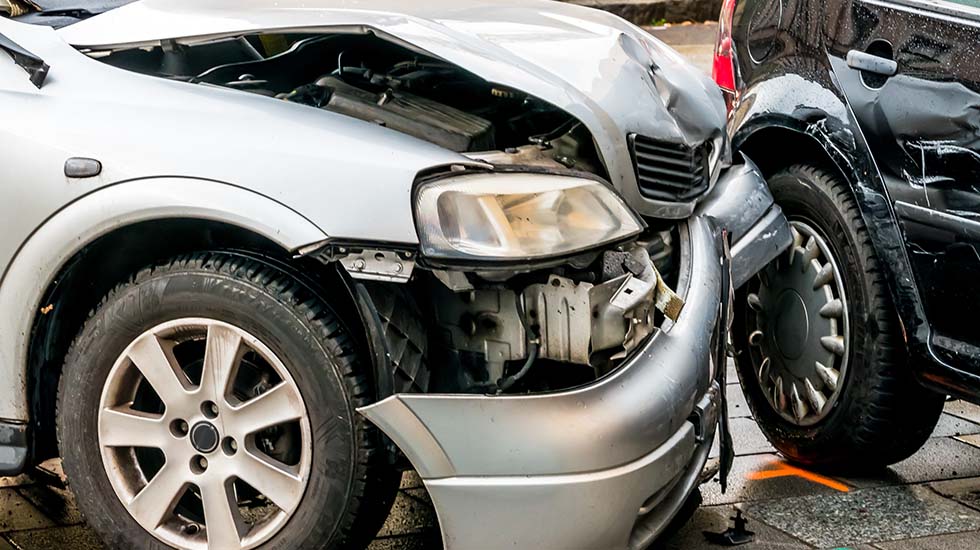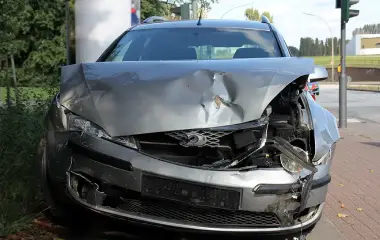When faced with a broken-down car, you might wonder what steps to take next. If the damage is such that it cannot be repaired economically, writing off the vehicle may be your only option in Australia. But just how much damage does it need for you to consider this course of action?
In this article, we’ll cover exactly what conditions qualify as a total write-off and look at the legal process of declaring a car uneconomical to repair. Let's get started!
What is defined as a write-off car?
Put simply, a car is considered a write-off when it has sustained damage that is deemed too extensive or expensive to be safely repaired. The classification for written-off vehicles can vary depending on the state or territory in which the car is registered, but generally, there are two categories: a statutory write-off and a repairable write-off.
What is a statutory write-off?
A statutory write-off is when a vehicle is deemed irreparable by an insurance company or assessor and is taken off the road. This usually occurs when the cost to repair a vehicle following a car accident or other damage exceeds its car market value. In Australia, vehicles declared as statutory write-offs cannot be re-registered for use on the road, but many parts can still be salvaged.
What is a repairable write-off?
A repairable write-off is a vehicle that has been damaged but not to the extent where it's considered irreparable. The cost to repair these vehicles is usually lower than their market value, meaning they can still be re-registered and put back on the road. A repairable write-off will often have restrictions applied or be considered less valuable due to its damage.

The types of damage that can lead to a written-off vehicle
When it comes to owning a vehicle, a variety of circumstances can lead to it being deemed a total loss, or in other words, a written-off vehicle. Some examples of types of damage that can result in this classification include severe collisions, floods, fires, and theft. In situations like these, the cost of repairing the vehicle can outweigh its total value, making it more practical to consider it a total loss and seek a replacement vehicle instead.
Understanding the various situations that can lead to a written-off vehicle can help you make informed decisions regarding protecting your investment and ensuring your safety while on the road.
Common write-off factors include:
- Structural damage, such as frame or suspension damage.
- Major mechanical or electrical faults.
- Safety hazards, such as faulty brakes or tires.
The cost of repairs vs the cost of a write-off vehicle
Regarding car accidents, one of the biggest decisions drivers face is whether to repair their vehicle or write it off as a loss. While repairs may seem like the more sensible option, particularly for those with sentimental attachments to their vehicle, the cost can often add up quickly.
On the other hand, a write-off may seem like a daunting financial decision, but it's important to consider any hidden costs of repairs, such as ongoing maintenance expenses. Ultimately, the decision will depend on the extent of the damage, as well as your budget and priorities. It's crucial to research and seek expert advice to make an informed decision that works for your situation.
Factors that can affect the cost of repairs
- Type of damage sustained
- The extent of the damage
- Age/condition of the car
- Availability of parts
- Labour costs
Financial factors to consider when writing off a car
The amount of car insurance coverage
Depending on the type of policy the driver has, you may only be able to receive a certain amount for writing off their car, which is lower than the car’s market value.
Potential depreciation
If the driver decides not to write off their car, you should consider how much its value will depreciate due to its sustained damage.
Cost of repairs
Before writing off a vehicle, drivers should consider how much they would need to pay out of pocket to repair it.

Steps to informing your insurance company of a write-off
When a car has been severely damaged or written off, informing your insurance company of the situation is important. It is important to understand the steps necessary for this process and how it impacts you financially.
1. Notify the Police (in the event of an accident)
When informing your insurance company of a write-off, the first step is to notify the police as soon as possible. This will help protect your interests from any legal liability that may arise from the incident in question. If your car was damaged in a natural event, like a flood or storm, jump to step two.
2. Document Everything
It is essential to document as much as you can about the incident in question. Take pictures of the vehicle, any damage sustained, and any paperwork related to the insurance policy, such as proof of ownership and payment history.
3. Contact Your Insurance Company
Contacting your insurance company promptly after the incident is essential for ensuring your claim is processed quickly and efficiently. Provide them with all relevant documentation, such as proof of ownership and photos of any damage sustained by the vehicle, to expedite the processing time.
4. Consider Your Options
Once your claim has been approved by your insurance provider, it's important to consider what options are available for you going forward. Some comprehensive car insurance policies may allow you to make repairs if they are deemed cost-effective versus writing off the car altogether. Be sure to ask about these processes before making a final decision.
Tip: Research and compare car insurance premiums and policies to ensure you get the best deal regarding a written-off car.
Finalise Details
Once you have decided whether or not to write off the car, contact your insurer again to finalise all contractual details associated with doing so, including settlement figures and information pertaining to replacement vehicles or transportation arrangements while awaiting a new vehicle purchase or repair completion on an existing car model affected by this accident.



.jpeg)

.jpeg)

.webp)
